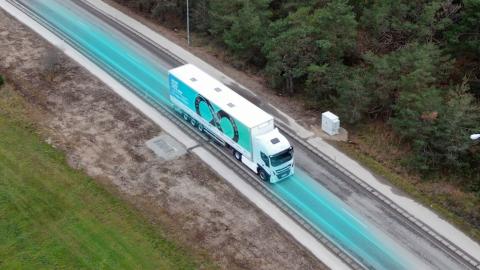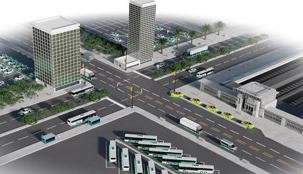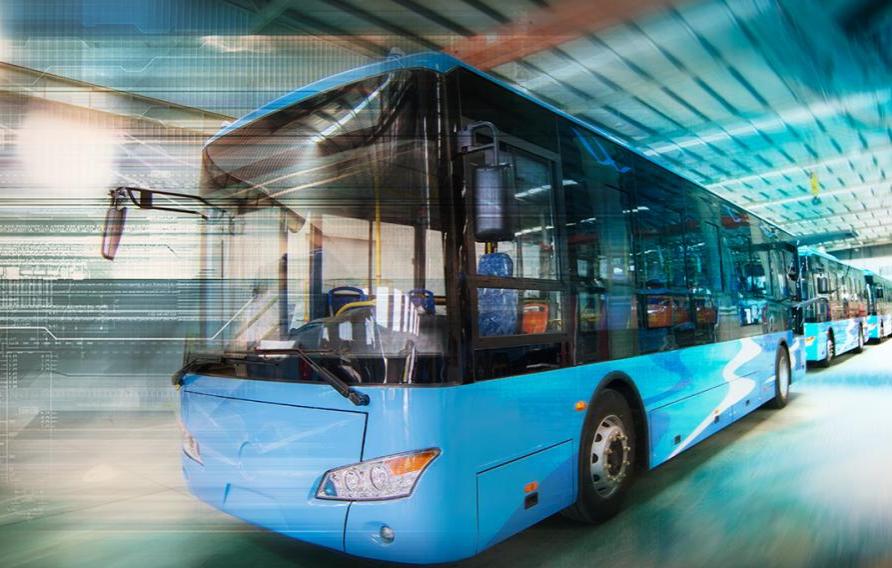




As a purpose-led company, we know we have a pivotal role to play in addressing the climate emergency. We consider this not only good business, but our duty to channel our technology-enabled expertise and capabilities toward benefitting people and the planet.



We work in partnership, delivering some of the most challenging, diverse and innovative projects and programs globally across multiple sectors. We integrate complex interfaces across planning, procurement and delivery to help unlock better social, environmental and economic outcomes from mega and giga projects.



For more than 30 years, Jacobs has been responsible for planning and implementing Lead and Copper Rule-related strategies which protect millions of people in the U.S. and Canada. Our work includes enhanced water quality monitoring strategies, sampling plan development, harvested pipe-scale analysis, lead service line inventories and replacement plans, corrosion control studies and the incorporation of equity and environmental justice considerations into compliance programs.



As our clients navigate the digital transformation and growing cyber risks, we have positioned ourselves at the forefront of this growth, adding digital capabilities, products and tools to serve a growing set of customers.



Sit down with our visionary team of thinkers, dreamers and doers to see what a day in the life is like.



A curated selection of some of the top-listened to and trending podcast episodes from our popular If/When podcast series, which has over 7M downloads to date.



Together with our visionary partner, PA Consulting, we're establishing our position in high end advisory services, creating a springboard to expand in high value offerings beyond the core.


At Jacobs, we're challenging today to reinvent tomorrow by solving the world's most critical problems for thriving cities, resilient environments, mission-critical outcomes, operational advancement, scientific discovery and cutting-edge manufacturing, turning abstract ideas into realities that transform the world for good. With approximately $16 billion in annual revenue and a talent force of more than 60,000, Jacobs provides a full spectrum of professional services including consulting, technical, scientific and project delivery for the government and private sector.



Jacobs. A world where you can.



As climate change threatens water security around the world, more communities are turning to water reuse as a resilient water supply solution and embracing the OneWater principle that all water has value. Jacobs has been supporting clients with water reuse programs for decades, beginning with the first applications of advanced wastewater treatment technologies in the 1960s. We provide our clients with a full range of services, from water reuse feasibility studies to design, construction and operations.



The only certainty about the future is uncertainty. Resilience is an attribute of a smarter planet, and requires planning and adapting ahead of potential threats. We help our clients survive, recover, adapt and thrive.



Jacobs is working to help clients across the United States secure federal funding for projects that make our cities and communities more connected and sustainable. Working hand-in-hand with clients from coast to coast and everywhere in between, Jacobs develops bold, innovative solutions to address the nation’s toughest challenges.



Now more than ever, we appreciate the hard work, sacrifice and dedication of the medical profession in ensuring the health and safety of our communities.



Together, we are stronger. Together, we can transform the future.



We’ve provided design-build services to the water sector for over 25 years and delivered more than 150 projects. We offer fully integrated design-build and design-build-operate capabilities to tackle the most complex water challenges and work in close collaboration with our clients.



Stories that capture our partnerships and innovative impact for a more connected, sustainable world



Did you know that transportation accounts for approximately one quarter of all carbon dioxide (CO2 ) emissions globally and, in the U.S., it’s the highest CO2 emitting sector?
Reducing transportation sector emissions is just one of the ways Jacobs can help address climate change challenges, and “greening” of public and private vehicles is a critical step on our path towards improving air quality and creating healthier cities.
So we’re thrilled to be part of a consortium chosen by the Michigan Department of Transportation (MDOT) and led by Electreon to develop and implement an inductive vehicle charging pilot — the first of its kind in the U.S.
The pilot program is being led by Electreon, a leading provider of wireless charging solutions for electric vehicles (EVs). As engineering partner, Jacobs is providing project management and design services to successfully deliver this pilot project through to operations in 2023. We’ve also recently announced a strategic collaboration with Electreon on select wireless EV charging projects across the U.S. for industry-leading fleet operators including city and state authorities.
As the #1 Design Firm ranked by Engineering News-Record and a leading provider of planning, design, construction management, and technical support services for transportation infrastructure, we’re already advising clients on how to plan and implement a conversion to EV through our strategic Green Fleets Initiative.
Jacobs Senior Project Manager Craig VanGordon is leading our team’s design effort and providing construction engineering support, while EV Subject Matter Expert Brian Burkhard is bringing his 34 years of electrical and systems engineering experience — including acting as project manager for numerous MDOT projects — to advise on matters related to intelligent transportation systems and EVs.
NextEnergy, a Detroit-based clean energy accelerator, will head up stakeholder and partner engagement. They’ll be supported by partners including automaker Ford Motor Co, diversified energy company DTE and the City of Detroit.
Last September, Michigan Governor Gretchen Whitmer announced a pilot initiative to develop the first wireless charging infrastructure on a public road in the U.S. in Michigan, “re-powering” the automotive vision that began more than a century before and led to the city’s moniker as the Motor City. The MDOT is providing $1.9 million in funding.
The consortium will design and build a one mile stretch of dynamic and stationary wireless EV charging technology in Detroit. The project will be hosted by and live within Michigan Central, a mobility innovation district.
Electreon’s innovative wireless technology enables inductive charging by placing embedded coils under the road pavement, along with semi-dynamic charging at strategic locations for charging vehicles while stationary in a queuing or parking lane, for example. The system will support a suite of use cases involving various vehicle types and partners including autonomous vehicles, and addresses several shortcomings in electrification related to battery limitations, charging needs and vehicle asset use. Overall, Electreon is solving range anxiety and reducing battery size.

Image courtesy of Electreon

Image courtesy of Electreon
Electreon has completed five successful projects across Europe on public roads in Sweden, Germany, Italy and Israel, and the Detroit pilot is expected to be one of the most diverse electrified roads in the world built and operated in an urban setting.
Electreon’s system is based on inductive energy transfer, involving energy being transmitted through the air from one coil to another.
There are three main system components:
The real-time management system (which includes cloud system meters) monitors and manages optimal EV charging at fleet scales, allowing for control oversight. What makes Electreon’s system completely unique is that the architecture is built for scale — one management unit can charge up to 60 vehicles simultaneously.
“As the world transitions to the future of electrified transportation, cities and communities are seeking and adopting green economic-centric models as part of the transformation. This innovative pilot project aims to demonstrate efficient vehicle operability to prove the viability of wireless EV charging and is just one of the ways Jacobs and our partners are working together to create a more connected, sustainable world.”

Ron Williams
Jacobs People & Places Americas Senior Vice President and General Manager Ron Williams
Jacobs shares MDOT’s vision of the electric smart mobility revolution and the role of inductive wireless charging as a key electrification solution. We are helping cities around the world move toward their net zero goals through alternative fuels and green transportation. Our Michigan office, which includes more than 600 employees, will support our project team. In addition to our strategic partnership with Electreon, Jacobs recently acquired StreetLight Data, Inc., which offers on-demand analytics that are transforming transportation and infrastructure planning, enabling smarter, more impactful investments.
On March 17, 2022, StreetLight announced their EV Solution for Site Evaluation, designed to assist with regional and local EV charging site selection. With data for all vehicles (not just EVs), the new offering is designed to help transportation planners optimize the build-out of EV charging infrastructure across North America. The solution provides comprehensive data to guide the use of National Electric Vehicle Infrastructure (NEVI) Program funds for State DOTs, as well as supporting the evaluation needs of cities, regions, utilities and charger operators.
“Jacobs is committed to delivering decarbonization solutions to address the increasingly critical issue of climate change. And as the world transitions to the future of electrified transportation, cities and communities are seeking and adopting green economic-centric models as part of the transformation,” says Jacobs People & Places Americas Senior Vice President and General Manager Ron Williams. “This innovative pilot project aims to demonstrate efficient vehicle operability to prove the viability of wireless EV charging and is just one of the ways Jacobs and our partners are working together to create a more connected, sustainable world.”

Reducing emissions and reaching “net zero” on a global level has been – and will continue to be – one of the world’s largest and most pressing challenges in the coming decades.

Reducing global transportation sector emissions is a top priority, and the greening of public and private vehicle fleets is one way for entire populations to take steps towards reducing their carbon footprint and environmental impacts.

As an electrical and systems engineer in transportation, Brian Burkhard is always thinking of ways to improve the operations of “bricks-and-mortar” transportation infrastructure with new technologies and data.
In this episode, we’ll explore some of the challenges surrounding America’s green transportation transition, how innovative solutions could expand electric mobility options, and how placing social value at the heart of infrastructure planning will be key to creating a successful network.